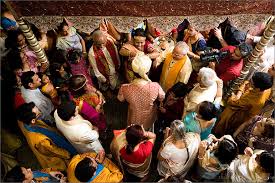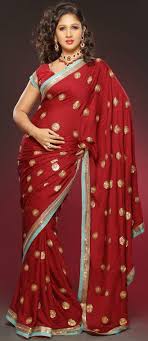Indian Wedding
After discussing about both Malay and Chinese wedding, for sure Indian wedding is the next topic. All can guess, right.  Hopefully, you all can enjoy the reading..
Hopefully, you all can enjoy the reading.. 
Introduction
Indian community is the third largest ethnic group in
Indian weddings are very bright events, filled with ritual and celebration that continue for several days. They are not small affairs, often with 400-1000 people attending (many of whom are unknown to the bride and groom). Though most marriages are arranged, some couples in urban areas have love marriages. The true Indian wedding is about two families getting wedded socially with much less emphasis on the individuals involved.
Before the wedding day:
Bariksha(merisik)
Bariksha (Var-iksha probably) is when the bride's parents have informally shown intentions that they want a particular groom, and the groom and his family have agreed. In this stage, several aspects need to be considered factors such as ethnicity, sub-ethnic, caste and religion. In addition, other factors such as economic status and social status include aspects such as age, education level, type of work, ethics and morality, looks and family background is also important. Often the information was obtained directly from the parties involved and also indirectly through friends and relatives. Sometimes the middle called tirumana taragaakan assist in this stage. Retracting at the end of this stage is frowned upon but is acceptable.





















